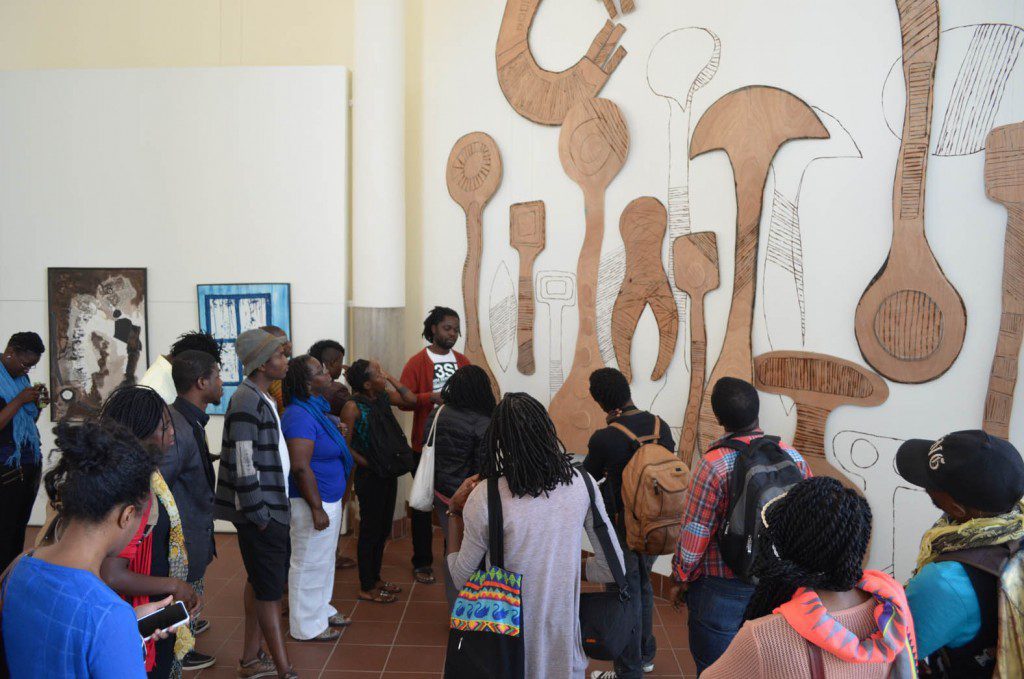Addis Ababa, Ethiopia
Deadline: 13 March 2016

With the international Àsìkò Art School, the CCA Centre for Contemporary Art Lagos has over the past four years presented an innovative programme of exhibitions, talks, seminars, workshops and events, reaching out to local and international audiences.
After two very successful programmes in Lagos, On Independence and The Ambivalence of Promise (2010) and History/Materiality in 2012, the initiative took on an itinerant format to engage Anglophone, Francophone and Lusophone Africa. Our west African neighbours Accra, Ghana in 2013, followed by Dakar, Senegal in 2014 were our host before moving southward to Maputo, Mozambique in 2015. In 2016, the programme continues its itinerancy by moving north east to the horn of Africa. This marks the first time the programme will engage with the history and culture of Ethiopia, the only country in Africa that has not been colonised. The capital city Addis Ababa, which serves as the seat of the African Union, seems an appropriate setting to continue our deliberations for the 6th and final edition of Àsìkò in its current format.
In 2010 CCA, Lagos began an innovative programme with the aims of filling a gap in the educational system in Nigeria and many African countries, which tend to ignore the critical methodologies and histories that underpin artistic practice. Using the format of part art workshop, part residency and part art academy, over the course of 30 days, the art school programme will focus partially on technique and primarily on methodology, critical thinking, and the implementation of conceptual ideas. The programme will be of benefit to people interested in thinking through the conception and execution of work, artists who are curious and interested in experimenting with modes of practice and thought outside of the traditional modes of working but not to its total exclusion.
At the end of the programme held in Accra in 2013, the participants provocatively titled their final presentation, “A History of Contemporary Art in Ghana in the Last Five Weeks.” Was this gesture an attempt to indicate that the complex history of contemporary art practice in Ghana could be broached within the temporal period allotted—five weeks? Certainly such an elaborate history condensed and absorbed in the space of 35 days, or 840 hours, is subject to questioning. Despite its inevitable sentiments of reductiveness, the title nonetheless provided a space of examination and reflexivity, a space in which to dwell on the effects of time and its potential in tune with the central theme of “The Archive.” This examination continued in 2014 in Dakar, challenging received ideas and opening the parameters for alternative as well as individual perspectives.
In Maputo in 2015 the 5th edition of Àsìkò, moved away from a definitive theme towards a more open discursive model that allows for ‘play and chance’ where individual perspectives and research interests of both the participants and the faculty can be highlighted. CCA will continue to focus on and explore the themes and issues that have been addressed over the past 5 years; colonial history and postcolonial reality, decolonial theory, identity, ‘Africanness’ and pan-Africanism, materiality, the archival, locality vs. globalism, the body and sexuality amongst others. CCA’s point of departure will continue to be African and African Diaspora cultural production and thought, as well as examining its shifts and developments in recent years and its place within a global context. Addis Ababa is one of the fastest developing cities on the continent and issues around the changing urban landscape form an important, local discussion point at the moment.
CCA, Lagos is an independent organisation that receives no government support and has no institutional affiliations. Our programmes come out of the need to build local support structures for art production, critical thought and to provide a supportive framework that encourages and advances the individual research and production of participants. We do not offer degrees or certificates.
Curatorial Segment of the Programme
Within the curatorial segment CCA continues a discussion begun in Dakar on the need to excavate exhibition histories in Africa in order to complete what Art History exists today. This was continued in Maputo. African exhibition histories and art history continues to be an urgent necessity in view of the many elder artists and practitioners that we continue to lose while their work goes undocumented. The two segments of Àsìkò – the artistic and the curatorial – attempt to take into consideration the various aesthetic and contextual strategies deployed by artists working across a multiplicity of forms and to engage with curators and writers on the strategies and formats as well as the critical discourse that emanate from the local in its presentation.
During Àsìkò 2016 CCA will launch the Asiko Publication, which is a culmination of 5 years of the programme, featuring commissioned essays, images, drawings, reflections etc. The Àsìkò Publication will be designed by Àsìkò lead facilitator Maputo 2015, Zimbabwean visual and graphic artist and educator Nontsikelelo Mutiti.
Who Can Apply?
Àsìkò is principally targeted at African artists working on the continent who may
not have had access to the education or professional opportunities that this
programme offers. They will be prioritised. However we welcome all applications
from artists and curators from Africa and from the African diaspora
■ Visual Artists can be working in any media – painting, sculpture, textile, ceramics,
photography, video, film and performance art,
■ Applications are open to all artists (including self taught artists) who have been
professionally active for at least 3 years.
■ Emerging curators and writers from across Africa with at least 18 months
experienced and who would benefit from the close interaction with artists as well as
other professionals.
■ Artists and curators who have participated more than once are not eligible to
apply.
Women artists and as well as emerging curators are strongly encouraged
to apply.
Download full information and application form here: